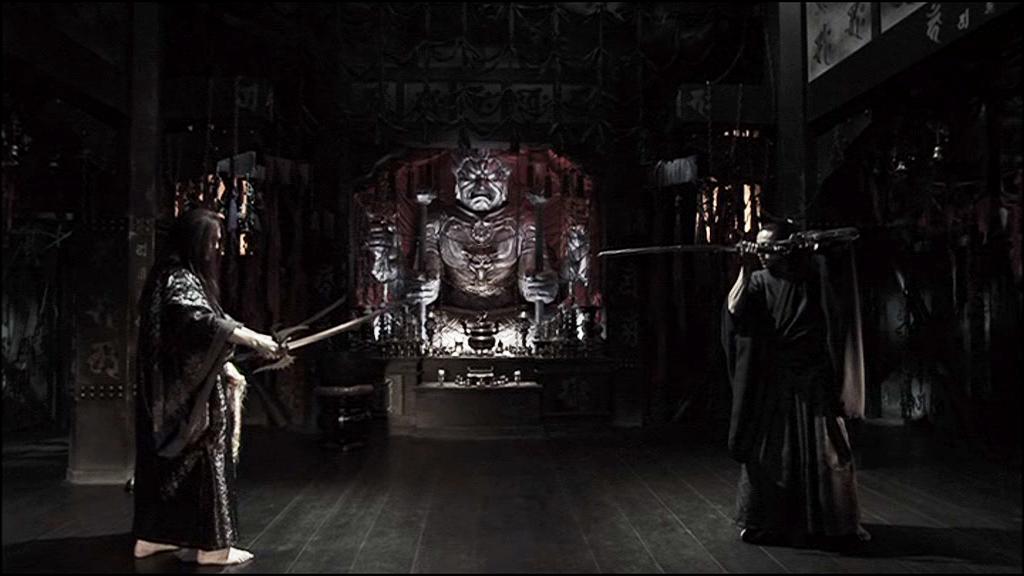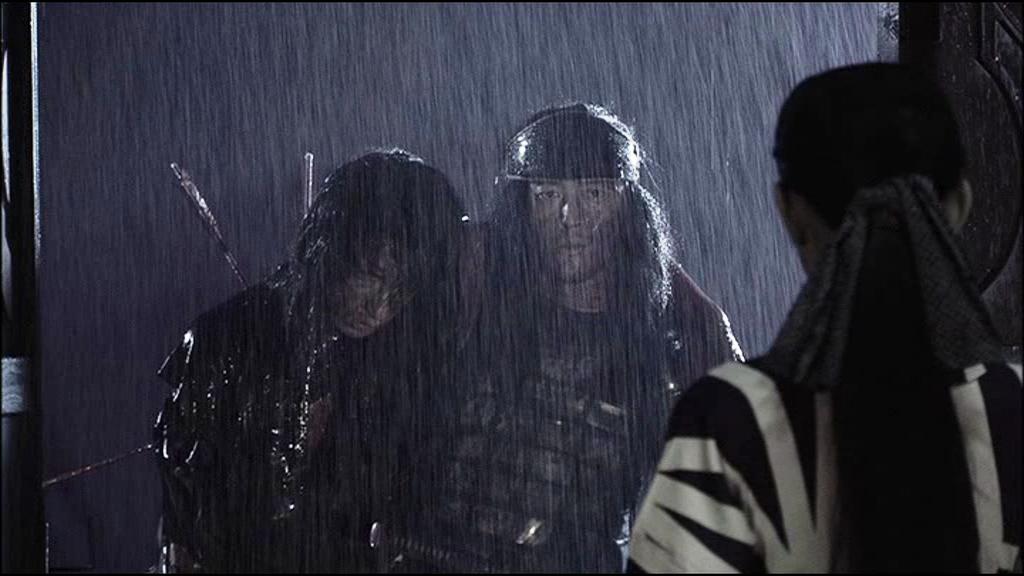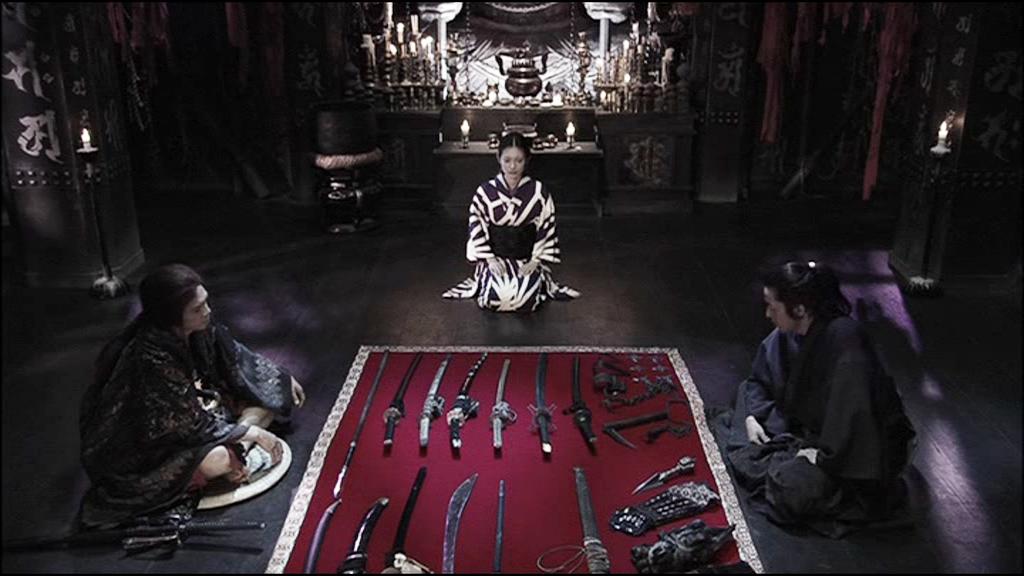
On a dark and stormy night, not long before the Meiji Era dawns in Japan

Developed by director Ryûhei Kitamura as part of the “Duel” project he worked on with Yukihiko Tsutsumi, Aragami, although bedecked with some unnecessarily flashy camera gimmickry, is essentially an intriguing fusion of minimalist character interaction and florid action in a classically limited situation. The story has the flavour of archaic folklore, and could have slotted neatly into Kaidan, as the everyman hero unexpectedly finds himself contending with forces beyond his initial coherence, having accidentally strayed beyond the edges of reality. The Samurai, confronted with the chance to face down the demon and turn his friend’s gruesome end into a fuel for victory, is in a situation replete with irony, especially considering that he may turn out to be exactly what he affects to despise, a creature of pure savagery.

Kitamura restricts the action to a single set, partly for budgetary reasons, but also through the demands of the particular experiment the Duel project represented, to examine the essential dramatic quality of any situation in which two protagonists engage in increasing conflict. The interior of the temple with its faintly malefic Buddha statue, saturated Hammer Horror colours, and shadowy reaches, whilst outside drenching rain falls and lightning flashes, is a scene of pure Japanese gothic. The duel concept is literal of course, with th necessary victory of one man over the other, but it also pervades the structure: the supplanting of generations, the awe of facing down implacable institutions, and the synthesis of new worlds, are themes that drive the story. The recurring physical details, in those foreign drinks and also in the weapons the Aragami offers the Samurai, explicate these ideas, but they also move more subtly as the young Samurai, confronting an opponent who embodies two awesome archetypes, at first responds to the idea of taking him on with hysterical laughter, but, realising there’s no going back, agrees to the inevitable duel because there’s no task more worthy than to discover what he’s capable of. Between them sits the woman, silent, biding caretaker of the recurring, more immutable tradition.

Similarly, the filmmaking suggests disparate influences fused: the eerie, restricted setting and throbbing, electronic music by Nobuhiko Morino calls to mind John Carpenter and early Michael Mann, and the high-flying action is standard contemporary wire-fu, but the first half of the film, which consists chiefly of the two antagonists talking, slowly peeling away the masks of civility and identity, equally suggests the formal intimacy of Yasujiro Uzo. Although more pathos could have been wrung of the Aragami’s existential mixture of fighting passion and exhausted interest in life, and the script lacks nuance, unsure at points how to balance dark classical drama with overt humour, it builds the rapport of its two main protagonists with care, and a sense of the transient beauty of the human experience, encapsulated in the ability to sleep and dream, lends the final stages a wistful emotion. Ôsawa’s Samurai lurches between poles of reactive anger and crippling laughter as he comes to comprehend his situation; Katô’s Musashi is excited by displays of his opponent’s uncommon potential, laughing in admiration when he displays the wit to attempt an ungentlemanly kill. The film’s stylishness reaches a dazzling height in the climactic duel when the pair fight in the dark, warring purely by sound, the shimmering ring of their swords passing through the air resounding in pitch black before the clash of sparking edges lights the protagonists in brief, bewildering flashes. Although the denouement fumbles and ideas run out, Aragami charms in not outstaying its welcome at a fraction over 70 minutes long, and the film’s look, courtesy Takumi Furuya’s excellent cinematography, is gorgeous.

